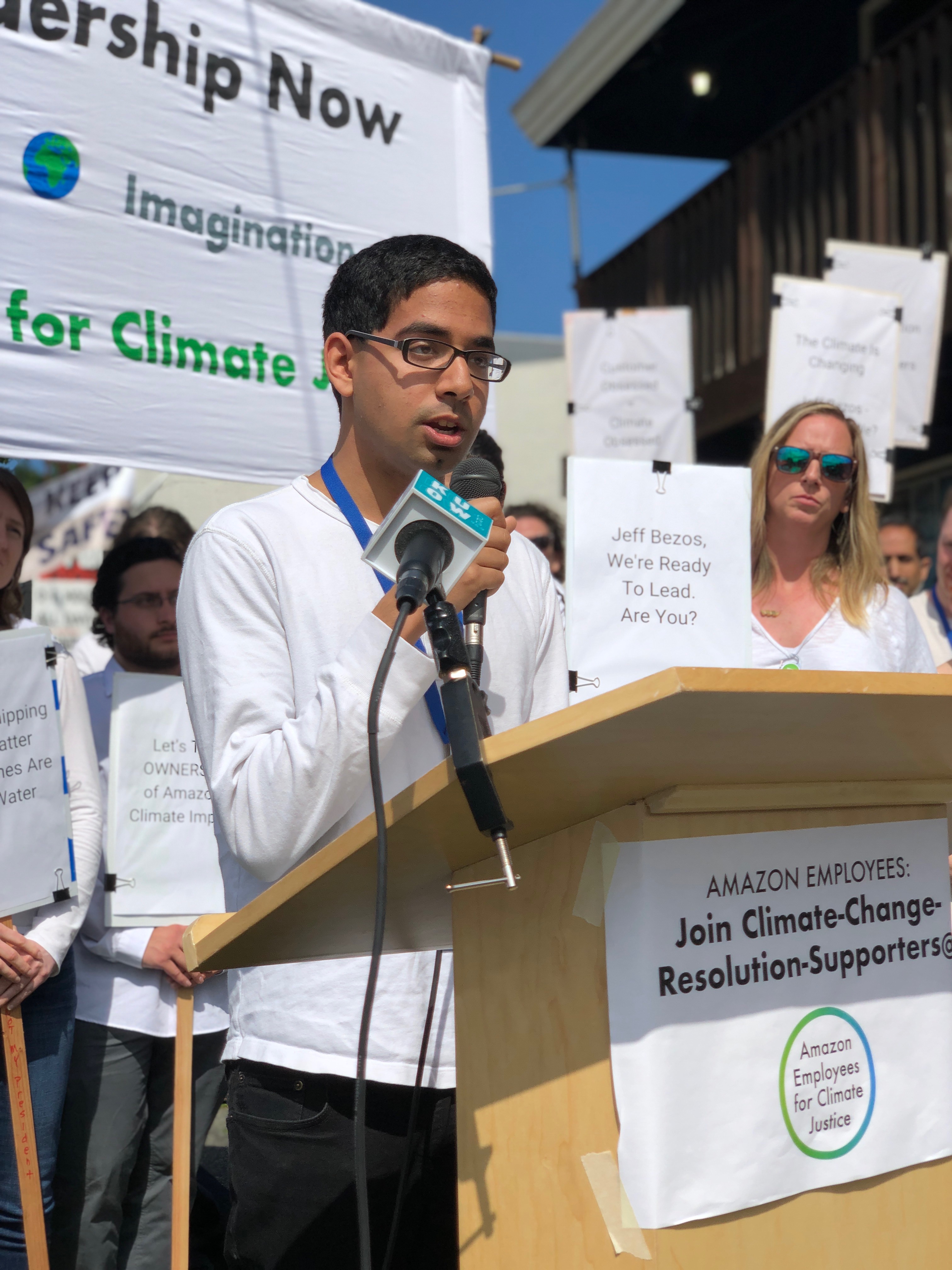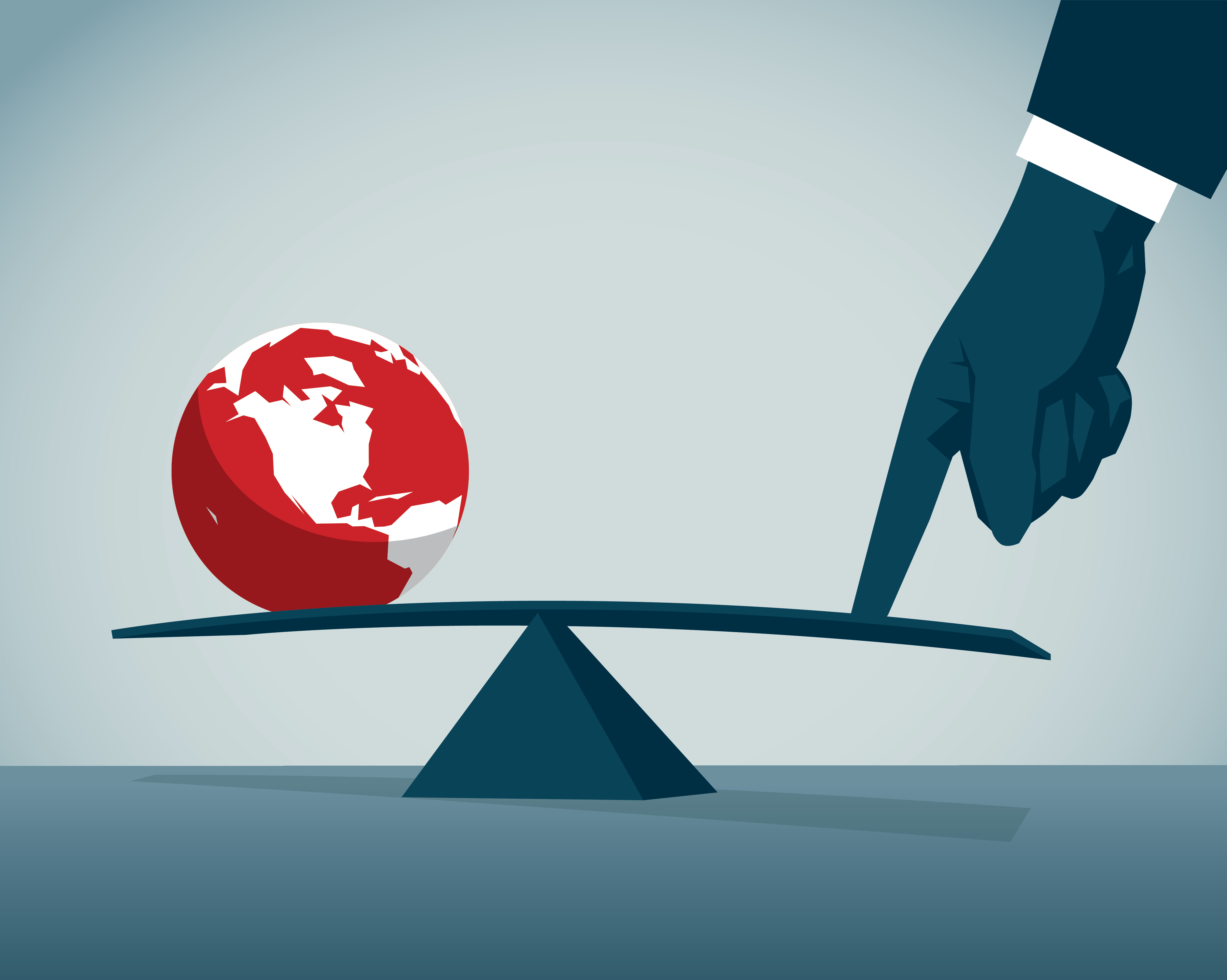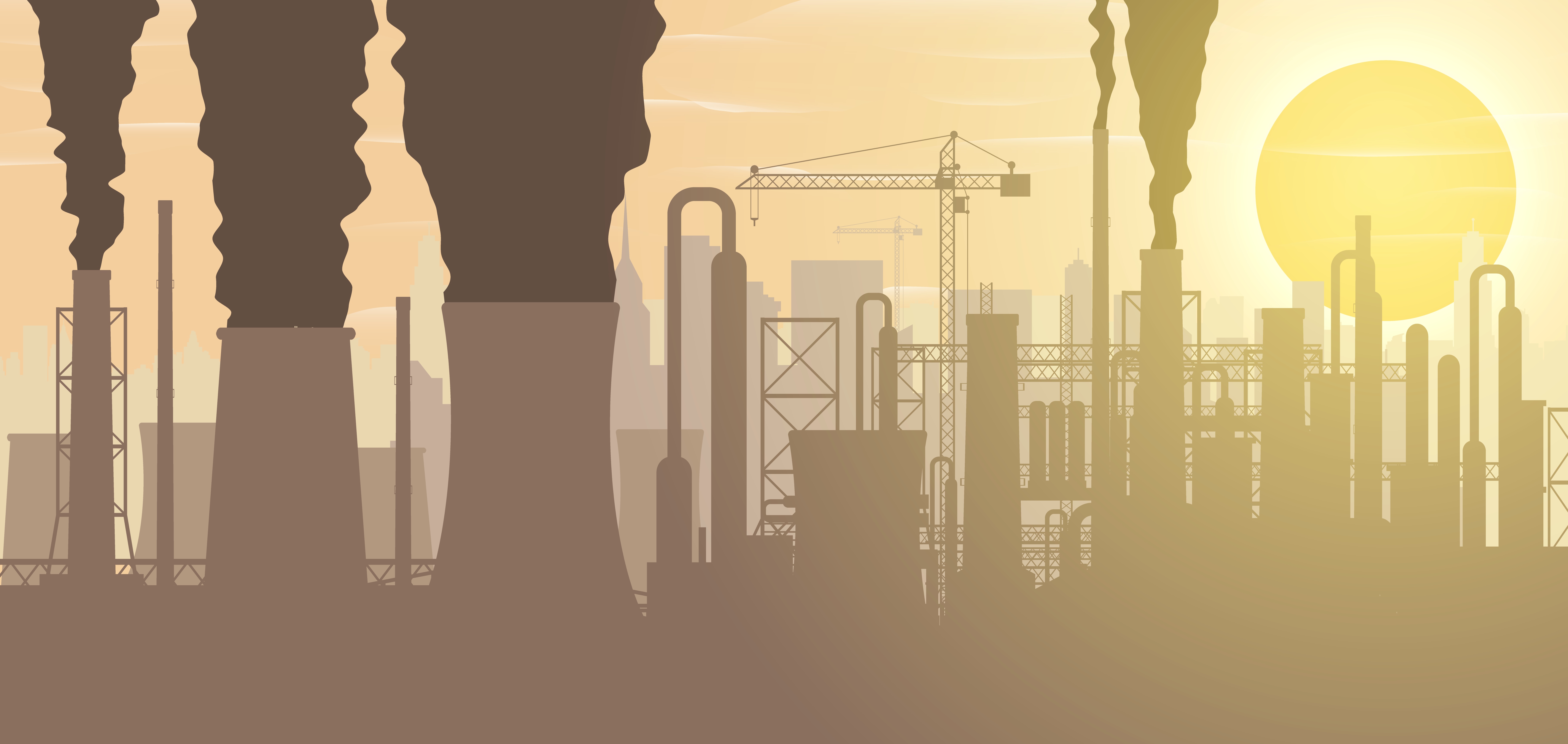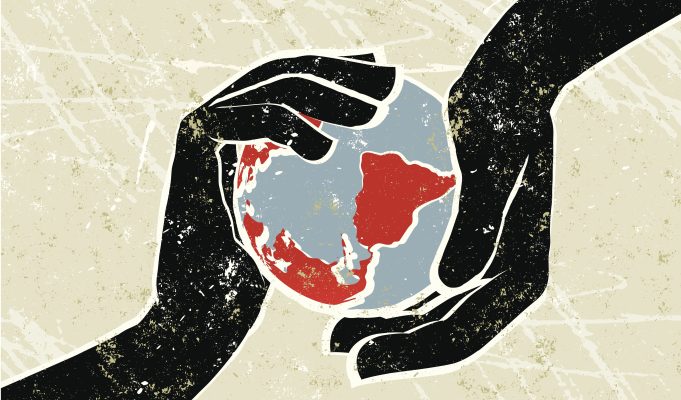Nearly 8,000 Amazon employees, many in prestigious engineering and design roles, have recently signed a petition calling on Jeff Bezos and the Amazon Board of Directors to dramatically shift the giant company’s approach to climate change.
By deploying a kind of corporate social disobedience such as speaking out dramatically at shareholders meetings, and by engaging in a variety of community organizing tactics, the “Amazon Employees for Climate Justice” group has quickly become a leading example of a growing trend in the tech world: tech employees banding together to take strong ethical stances in defiance of their powerful employers.
The public actions taken by these employees and groups have been covered widely by the news media. For my TechCrunch series on the ethics of technology, however, I wanted to better understand what participating actively in this campaign has been like some of the individuals involved.
How are employees in high-pressure jobs balancing their professional roles and responsibilities with being actively, publicly in defiance of their employers on a high-profile issue? How do leaders in these efforts explain the philosophy underlying their ethical stance? And how likely are their ideas to spread throughout Amazon and beyond – perhaps particularly among younger tech workers?
I recently spoke with a handful of the Amazon employees most actively involved in the Employees for Climate Justice campaign, all of whom inspired me– in similar and different ways. Below is the first of two interviews I’ll publish here. This one is with Rajit Iftikhar, a young software engineer from New York who moved to Seattle to work for Amazon after earning his Bachelor’s of Engineering in Computer Science from Cornell in 2016.

Rajit Iftikhar
Rajit struck me as a humble and precociously wise young man who could be a role model — though he seems to have little interest in singling himself out that way — for thousands of other software engineers and technologists at Amazon and beyond.
Greg Epstein: Your personal story has been key to your organizing with Amazon Employees for Climate Justice. Can you start by saying a bit about why?
Rajit Iftikhar: A lot of why I care about climate justice is informed by me having parents from another country that is going to be very adversely affected by [climate change]. Countries like Bangladesh are going to suffer some of the worst consequences from climate change, because of where the country’s located, and the fact that it doesn’t have the resources to adapt.
Bangladesh is already feeling the effects of climate crisis; it is much harder for people to live in the rural areas, [people are] being forced into the cities. Then you have the cyclones that the climate crisis is going to bring, and rising sea levels and flooding.
So, my background [emphasizes, for me] how unjust our emissions are in causing all these problems for people in other countries. And even for communities of color within our country who are going to be disproportionately impacted by the emissions that largely richer people [cause].
Epstein: You personally were born and raised in Long Island, New York. And your parents came here from Bangladesh around the 80’s, 90’s or so?
Iftikhar: Yeah.
Epstein: You’ve mentioned elsewhere that for a long time, you felt like just any American, but that perspective has been evolving of late due to your concerns about America’s climate-impact other regions and communities of color– is that right?
Iftikhar: Yes. [Climate change] is not the only issue I am reflecting about. These political times, and Donald Trump have definitely made me reflect on many other issues as well.
Epstein: Your experience resonated with me. I grew up not far from where you did, in Queens, New York, which is also part of Long Island, and one of the most diverse places on earth. I am the son and grandson of refugees to this country.
My whole childhood I was surrounded by immigrants from all over the world, and I just wanted to an American. I think there was a lot of pressure on young kids like us to just sort of assimilate and go along with the best parts of America.
Iftikhar: Yes.
Epstein: So how has it been hard for you to take this kind of stance? It’s not a common thing for employees one of the most giant and influential corporations in America, to speak out the way that you have. And in your early 20s, just out of Cornell, you’re probably one of the younger members of the group that is doing so, right?
Iftikhar: Yeah, I am [among the younger members]. I definitely did not see myself in this type of group when I first started, or when I found out I was going to be joining Amazon. But when I heard about the shareholder resolution, and that we were trying to really build a community of support around it, [joining] was actually a no-brainer for me.
Because despite whatever fears I might have, it’s hard not to see myself as in a pretty large position of privilege given where I am now, compared to what I know about the type of life my parents had to live or people back in Bangladesh have to live.
If I have the power to be able to do something to affect change, and that opportunity’s in front of me, I feel like I have to take it. That’s what it was: I didn’t really think twice about it.

Image via Getty Images / erhui1979
Epstein: Do you see others around you who feel they’re more able to just ignore these issues?
Iftikhar: There’s always going to be some people who look the other way, but what we’ve been seeing, and I’ve been really inspired by is that if you look at things like the climate strikes across the world, and things like the Sunrise movement, there’s been a huge resurgence of people realizing we can’t just wait for other people to deal with the problem. It comes down to everyone, all of us, regardless of who we are, to do something. A lot of people have been coming to that realization, that it’s up to us to act now.
Epstein: I want to get more of a sense of what being part of a campaign like this is like in the office. You’ve been involved with the campaign since about when?
Iftikhar: So I first heard about it back in, like, October. I’ve been heavily involved since January.
Epstein: So several months now. And over that time, how have you balanced your position as an employee, with a chain of command, and being an advocate, in this case for the environment within your company? What dilemmas does that create?
Iftikhar: The way I view it, and the way that most of us view it is we’re not doing anything that’s going to harm Amazon. We think Amazon becoming a leader on sustainability, on renewable energy, is good for the company as well. We don’t see it as an adversarial thing. We genuinely want to make Amazon better, and we think that being a leader on renewable energy is a way to do that.
Epstein: I want to know more about your experience with apathy. I mean, the resolution has a little bit more than 1% of the company’s employees that seem to have signed up for it at this point. I would imagine a lot more people support it, but maybe don’t feel like they’ve got to take action, or they don’t feel ready. Are there things you’re doing to bring about more action?
Iftikhar: I do want to clarify. Unfortunately for us, as tech workers, it’s a little bit hard for us to reach fulfillment centers and reach fulfillment center workers. So the 1% you cite I think would be if we reached all the fulfillment center workers as well.
There were some fulfillment center workers who signed, but the vast majority of [signers] were actually people in the tech workforce. And if you look at [the signers as] a percentage of the tech workforce, it’s actually closer to 10% or 12%. So I think it is actually a hugely significant [accomplishment]. I don’t think it’s ever really been done before, in terms of the number of people who publicly put their name on the letter.
What if it can be an outlet now, for [even more] people, who always really wanted to do something but didn’t know what to do outside of just individually trying to lead more sustainable lives? There are definitely some people we just haven’t been able to reach yet just because the company is huge.
It’s international. It’s not going to happen overnight for us to build a network for all the people who want to do more on climate. But [that’s what] we’re working towards. We’re not going away.
Epstein: I would probably agree this is a historic action. And it’s particularly relevant because big tech companies are known for what in some ways is a problematic privileging of engineers like yourself. But if you’re saying that around 10% of people in those roles, which are privileged in this kind of company, have signed up for this document, that’s a lot.
Iftikhar: I think it is.
Epstein: What do you think about the Amazon Web Services work in oil and gas? Are you willing to say you want Amazon to shut that kind of work, in that industry, down completely?
What is the dialogue around what seems to be this ramped up emphasis at Amazon, and companies like it to be fair, in helping oil and gas companies to be more efficient and extract more oil and gas?
Iftikhar: Yeah. What I want to see is no more custom solutions for oil and gas companies. I don’t think Amazon should be actively helping and advertising to companies that are trying to expand and accelerate fossil fuel extraction. Based upon the latest climate science, we can’t even burn all the fossil fuels that we already have.
So what we’re doing by helping extract and discover more is making it that much harder to fight the climate crisis. And I think it’s a sign Amazon is not prioritizing [climate], because we’ve made the decision to not sell guns, [or] Confederate flags on Amazon. If we [saw] a crisis, we wouldn’t be doing the work we’re doing.

Image via Getty Images / Abscent84
Epstein: What kinds of messages have you heard from upper management about this particular decision?
Iftikhar: We haven’t heard much about it. The one meeting we had with them where this came up, which was a while ago, the person in charge of sustainability was not even aware that this [Web Services fossil fuels] business existed.
Epstein: People don’t tend to think of Amazon Web Services as part of the core business of Amazon, although from what I understand, it’s a huge driver of revenue for the company, at least currently.
Iftikhar: We don’t know how big exactly the oil and gas contracts are, but we do know that overall the tech industry [is receiving] billions of dollars for oil and gas contracts. It’s not some small thing. It’s something I don’t think that we should be investing in.
Epstein: I’m working on exploring ethics in this industry– or in these industries. I see what we call the tech industry as almost more like a religion than an industry, in the sense that tech today is so global, and encompasses so many different aspects of what it means to be human. But I’m interested in your thoughts on ethics generally. How do you know that what you’re doing is right? What principles are you feeling guided by in your decision-making?
Iftikhar: That’s the kind of question that goes beyond just tech, right? I think that’s more about having principles or ethics or morality more generally. And it’s hard for me to speak for anyone else but myself.
But for me personally, I think it’s about empathy, caring about what happens to other people, especially people who aren’t as privileged as myself. And [when] there are difficult decisions to be made, it’s about not sitting back and hoping for someone else to say things that need to be said.
Epstein: That language, which sounds pretty secular to me, is the kind of thing I would think a lot of people could agree with, regardless of whatever religious or nonreligious perspective they’re coming from.
Iftikhar: Yeah. It’s human to empathize with others and [take] responsibility for our actions. Because it’s not even just a case of someone else suffering and we have the ability to help. This is a case where our continued actions are making things worse for other people, and we need to take more responsibility for our own emissions.
Epstein: In its name, your group speaks not just about mitigating climate change, but of working for “climate justice.” Why is that language, that phrase, important in with regard to the ethical stance you and your peers are taking?
Iftikhar: [Climate justice] goes beyond just reducing emissions. We need to be very cognizant of communities that have been disproportionately impacted. As an example, we know diesel vehicles disproportionately pollute in communities of color. We know fossil fuel extraction sites are basically sacrifice zones, usually concentrated around communities of color or indigenous people.
Epstein: A lot of what Amazon has said up to now to address climate change revolves around carbon offsets, and doesn’t take into account, say, that there were just 20,000 new diesel vehicles purchased by the company, and that sort of thing.
Iftikhar: Yes, there were 20,000 diesel vehicles purchased, and that goes exactly into what I was saying. If we just say offsets, and we’re only thinking about net zero and not about climate justice, we’re still going to be polluting in communities of color. We could still be wasting indigenous land. We’re not taking a holistic view of what climate justice should look like.
Epstein: I was thinking initially it might be intimidating for you to be so young and so involved in this kind of campaign, but given the kind of intersectional approach you sound committed to taking, a lot of what I’m hearing sounds to me like generational language. Whether through Cornell or however else, I imagine you’re in touch with a lot of young people in engineering and tech, who might feel similarly. How generational does this movement feel to you?

Image via Getty Images / Delmaine Donson
Iftikhar: There’s certainly an aspect of the climate movement being generational, in that it’s young people’s lives who will be impacted the most. I also think there’s been increasing awareness in younger generations of the injustices of the past, and how they persist to the present.
But my hope is that this is not only going to be a thing in Millennial culture. I’m hoping that this care about what’s going to happen to the planet in the future is something everyone can relate to, even if it might be Millennials and Gen-Z’ers who are leading the challenge right now.
Epstein: Do you feel it’s your peers, age-wise, who are leading the charge?
Iftikhar: You mean at Amazon?
Epstein: Yeah, I mean at Amazon, or in this kind of justice work that you’re aware of.
Iftikhar: It’s not like it’s only people who are under a certain age who are participating. It’s definitely intergenerational, in terms of who is coming to this understanding and who is participating in these movements.
[People] in a given generation are more likely to use this type of language, but whether it’s our movement at Amazon or other movements, we see people from all ages and of all different backgrounds calling for the same things: equitable climate justice.
Epstein: It can be hard to be working very hard on such big issues for what might in the near term feel like small victories, or small defeats for that matter. How do you stay positive?
Iftikhar: I think it’s about seeing myself just as one part of something much bigger than myself. If people like me don’t act, then who will? So regardless of what we are able to accomplish or not accomplish, we need everyone to be willing to try to actually make the change that we can.
Especially for something like the climate crisis, there isn’t really another option. Doing nothing is not an option, so we either do something and take what we can get, or we sit back and do nothing. And the climate crisis doesn’t go away. So don’t think there’s much point in worrying about what we can’t do, until we try.
Epstein: And a last question, which is how I conclude all of these interviews: how optimistic are you about our shared human future?
Iftikhar: I’m optimistic, not because I just hope things will happen, but because there’s no reason not to be. Human history so far is a lot shorter than we think. We don’t even know what we can do if we try. So I choose to believe that if all of us put our best efforts forward, and we all try to create a better world, then we have no idea what limits there are to what we can do.
Epstein: I’ve been speaking with some senior or former senior leaders at big tech companies recently, who’ve emphasized to me how important the advocacy of the employees at these companies is, and especially how when people such as software engineers like yourself get involved at these tech companies that so prize the work that you do, it really makes a big difference.
Iftikhar: That’s great to hear.
Epstein: Also, I grew up maybe a half hour drive from where you grew up, about 15 or 20 years before you were born. And having interviewed you just now, what really stands out to me is how eloquently you just spoke of how you see yourself as part of a larger whole.
When I was a kid, we were taught– I was taught– to see myself as a superhero who was going to do amazing things; that I could do anything and be anything and achieve anything, and look how great I was going to be. I was not really taught to see myself as part of a larger whole, or part of the team. “Part of the team” was sort of for suckers, for people who couldn’t be the champion and the winner and the star.
I’m so encouraged to hear how much more easily and more naturally you seem to put your own success in the context of other people’s success. Maybe that’s why I was asking about generational leadership, because this seems to me to such an inspiring change.
Iftikhar: Thank you. I actually would rather be part of something larger than just be a superhero myself, honestly. The way I grew up, community was always very important. Being part of the community that has your back and wants the same things is really nice, versus, if you’ll take all those modern-day superheroes: wow, that seems very lonely. I like having other people who are part of the same fight a lot more.
Epstein: Beautifully said. Thank you so much, Rajit. I look forward to following your work on this.
